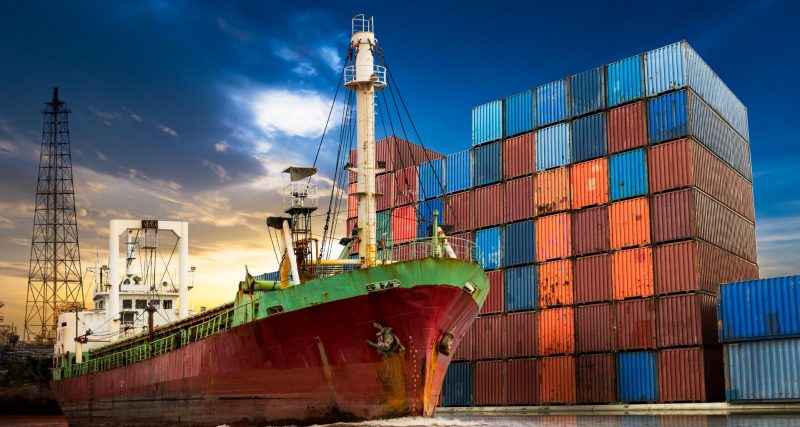The shipping industry handles a whopping 90% of global trade. Thousands of ships sail daily, carrying passengers and cargo to different parts of the world. With this massive transportation system, the industry generates a large volume of data – Big Data. The industry can take advantage of this data in several ways, as outlined in this article.
What is Big Data?
Big data refers to a huge amount of data usually stored in a cloud-based infrastructure. External hard drives and servers are often not enough to store a large volume of data, which is why cloud-based storage is used.
There are two types of big data. The data, structured or traditional data, and unstructured or non-traditional data. Structured big data refers to data collected through structured means. For instance, data from financial transactions, online forms, customer surveys, and invoicing systems.
ADVERTISEMENT
On the other hand, unstructured big data originates from time-sensitive and spontaneous information. It can also refer to data that is just there. This means that the data is present but is not organized into a formal structure such as a spreadsheet.
Non-traditional or unstructured data includes weather data, traffic, and location information.
It also includes audio files, videos, social media posts, and text communications.
ADVERTISEMENT
Managing big data is a more complex process than handling data with a smaller volume. Big data requires advanced tools for processing and analytics to make it useful. Several industries use big data to improve internal processes and customer interaction. It also contributes to better business decision-making.
How can big data be beneficial to the shipping industry?
Today, the shipping industry has invested in big data analytics. Big data analytics can improve a ship’s efficiency. It can also predict optimal routes by using the weather data generated on each trip.
Big data has the potential to play a massive role in the shipping industry. A lot of this potential remains untapped. Here are some areas in which the shipping industry can take advantage of big data.
ADVERTISEMENT
1. Predictive Analysis
Predicting the weather is a complex task, and not always accurate. With big data, analysts can come up with fairly accurate predictions from the datasets they collect.
Aside from predicting the weather, analysts can also use big data to recommend the optimal cargo load per ship.
Combining these factors can lessen problems during the trip. It will also help ships avoid extreme weather conditions to safely reach their destination.
2. Cargo Tracking
Data analysts can use big data to improve cargo tracking methods. They can analyze the available datasets to identify weaknesses in the cargo shipping process. Based on these weaknesses, they can then recommend suggestions on how to improve each process.
3. Route Optimization
Combining the uses of predictive analysis and cargo tracking, big data can recommend optimal routes to take. This means that the data can help ships avoid dangerous weather conditions. Big data can also suggest routes that will help the ship reach its port faster.
4. Vessel Operations
Among the best ways to take advantage of big data in shipping is by improving vessel operations. Cargo tracking, location monitoring, and logistics management can be used to improve operations.
Vessel re-routing also becomes possible with the use of big data. Big data can help determine and synchronize the arrival of vessels in each port.
This can lead to an increase in efficiency as ships won’t have to wait for too long before docking. Big data can also pave the way for vessel automation. In the future, you may even witness a self-sailing ship.
5. Sustainability
Global carbon emissions have become a major problem. The shipping industry contributes an estimated 3% of all the emissions around the world. Thus, the shipping industry can also contribute a lot of data to an emissions factor database. Analysts can extract this data to find ways to reduce carbon emissions.
Since big data aims to improve the operational efficiency of ships, it can also reduce carbon emissions. How does this happen? Operational efficiency and automation can lead to the optimal performance of a ship. This way, ships can control their fuel consumption. Reducing fuel consumption can lead to fewer emissions and promote sustainability.
6. Ship Design
Big data can also contribute to a ship’s design. The data can identify weak points in each vessel. This will be the basis for improving the architecture of the ship in the future. Additionally, big data and automation have allowed ship engineers to create ship prototypes. This helps save on costs because engineers can test a ship’s design on a computer before proceeding with the construction.
Conclusion
Big data is widely used in several industries today. It can significantly contribute to the future of technology. In the shipping industry, the potential of big data is endless. It can improve weather forecasts, enhance ship efficiency, and promote sustainability. The major players in the shipping industry must take advantage of big data now to help improve the global trade system.
Bonus Tip: Consider doing fun and different activities every day. This has proven to be a very strong point for many people to turn their day around. Try adding small elements to your daily routine that will have a tiny positive effect on your life. Watching a funny video, reading an inspirational quote, and visiting fun sites like fortune-telling websites, could have a positive effect on your life.








